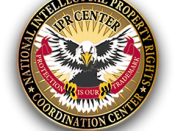COMPUTER LAW
------------------------------------------------------------------
Introduction
The explosive growth of the Internet has already impacted the way society functions and has left us with many new laws. The laws involve Intellectual Property Rights (copyright), Cyberspace Law, Privacy, Commerce, Computer Fraud, Hacking as well as International Law. Below are a few examples.
Copyright law
Typically the primary means of affording legal protection for producers of computer programs, computers, computer systems, etc. is by copyright law.
Copyright Issues
Copyright law attempts to balance various interests: provide protection of the creator's intellectual property so that he/she will have a financial incentive to create and innovate, but not so much protection that will too severely inhibit or prevent others from building on the art form. Copyright law attempts to balance the rights of the creators, users, competitors, licensees, etc.
Copyright Requirements
Copyrights apply to "original works of authorship fixed in any tangible medium of expression".
"Original" means basically not copied.
The work need not be too original, but may not be merely a trivial variation of another work.
"Works of authorship" specifically excludes an idea, procedure, process, system, method of operation, concept, principle or discovery. So, for example, an idea cannot be protected by copyright law, only the expression of the idea. This prevents an author from obtaining a monopoly on an idea merely by writing it down.
"Fixed in any tangible medium of expression" includes a piece of paper and computer disk or tape. Even though RAM is volatile RAM is included.
"Authorship" applies to either the individual creator or to a "work for hire" (e.g. an employee). When an individual creates an original work, that individual owns all the rights under copyright law. An employer owns the rights when an employee working within the scope of his/her employment creates a work. If more than...



Good Work!
An excellent essay and effort at the topic. This reads nicely and is very informative. Good Work!:)
2 out of 2 people found this comment useful.